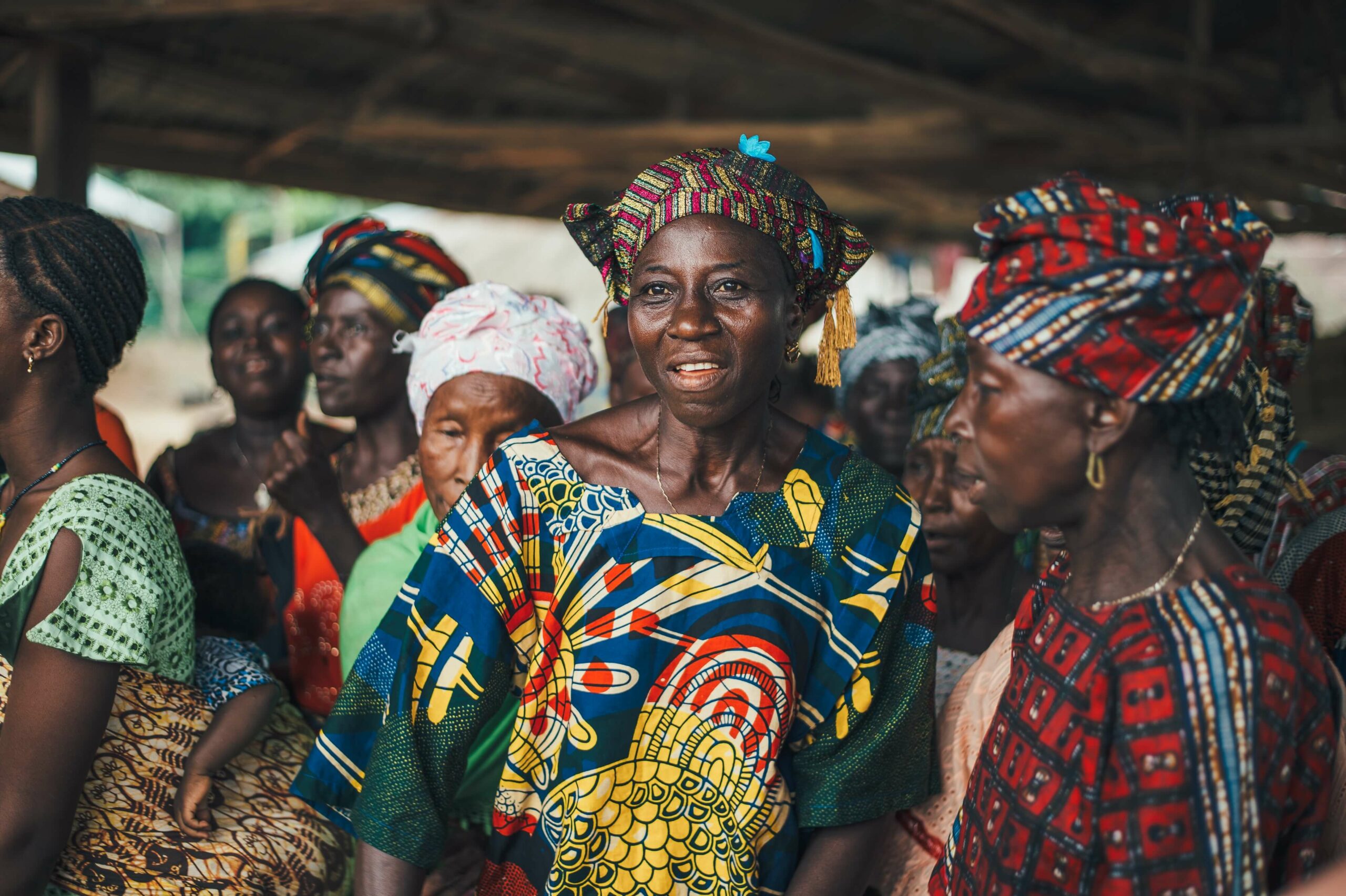Traditional Nigerian weddings are culturally significant and delightfully beautiful events. And perhaps, Yoruba weddings are the most anticipated of all Nigerian marriages.
The Yoruban people love good times, which is well-showcased in how they handle their wedding celebrations. In this post, we’ll look into some common Yoruba wedding traditions and rituals.
So, if you’re dating a Yoruban, here’s what you should know to expect on your big day.
12 Yoruba Wedding Traditions and Rituals
1. Proposal
The Yoruban proposal generally begins with an introduction. This phase is where the bridegroom and chosen family members visit the bride’s family home to introduce themselves and make their intentions known.
Nonetheless, this shouldn’t be the first time the groom’s party and the bride’s family meet. Often, the bride introduces the groom to her family well before the wedding plans begin rolling.
These “introductory” meetings can last a day or several, depending on how both parties negotiate. At the end of the introduction phase, the bride’s family presents the groom and his party with the dowry requirements. If the groom fulfills his end of this deal, it shows that he’s truly committed to proceeding with his marriage.
2. Alaga Iduro
Another reason Yoruba weddings are so spectacular is the Alaga Iduro. These are the female masters of ceremonies at Yoruba customary weddings.
Anybody who has been to Yoruba weddings understands that Alaga Iduro is one thing these ceremonies should never lack.
The traditional MCs light up the event with comical songs, tasks, and requests. Their theatrical performance of the customs of the wedding ceremony keeps guests thoroughly involved throughout the hour-long event.
3. Humorous Prayers
Friends and family shower the newlyweds with countless prayers for prosperity, longevity, and fertility, expressing the religious aspect of Nigerian society. However, the Alaga Iduro takes this element to a whole different level.
Prayers at Yoruba ceremonies are simply hilarious. For instance, Yoruban tradition suggests that a woman should never depart her matrimonial home. A literal translation of a common Yoruba prayer: “Je ki’n r’ile oko gbe.” During this prayer, the Alaga request brides to hold onto their bottoms while chanting the words.
Another prayer example is where the bride’s party holds their back to symbolize that they’re carrying something on their backs. This prayer requests God to grant the bride the gift of children she can carry on her back. All this adds up to make the Yoruba wedding more entertaining.
4. Prostrating
Prostration is another tradition that acts as a gesture of respect in Nigerian marriages. In a traditional Yoruba wedding, prostration is frequently performed to express respect and regard to older relatives, typically the bride’s family.
This gesture represents the groom’s gratitude to the bride’s family for bringing up his future spouse. The groom must win the affection and respect of the bride’s family during the wedding, and this is one manner he does so.
Typically, the groom and his entourage carry prostrate at the time set by the Alaga Iduro or Alaga Ijoko. The bride’s relatives will then pray for the prosperity of the newlyweds while prostrating on the ground.
5. Tungba Music
One distinguishing characteristic of Yoruba weddings is the style of music they play. Whenever Yorubas assemble to commemorate a wedding, there’s a strong possibility that they’ll play Tungba music.
Yorubas are quite energetic folks, and Tungba acts as the spice to their celebration. This music genre combines elements from pop, gospel, and cultural songs.
The result creates an electrifying atmosphere that gets everybody on the dance floor.
6. Bride Price
Traditionally, as a token of appreciation to the bride’s parents and extended family, the groom’s family presents a bride’s price or dowry before the wedding. It shows appreciation for the role they played in bringing up the bride. Bride prices or dowry are typically material, like:
- Money
- Food
- Property
- Household items
Generally, the bride’s family collaborates to prepare the list. Once settled, the dowry shows the groom’s assurance that he can take care of their daughter.
However, the idea of bride price doesn’t sit right with some cultures since it implies “possession'” of the bride. This assumption is the furthest thing from the truth.
As already mentioned, the dowry symbolizes that the groom can take the woman under his roof and cater to her needs. Also, it acts as the groom’s gratitude to the bride’s family for their assistance in rearing the woman he’ll eventually identify as his wife.
Dowry is the recognition for her parents and other family members’ efforts throughout their life, their investment in schooling, and more. This consideration explains why the bride price includes gifts for the parents and other family members.
7. The Food
In Yoruba, you’ll be the talk of the village (not in a good) if people show up at your wedding and leave without eating to their fill. Therefore, during weddings, expect nothing but the best Yoruban foods.
While you’ll find common dishes like chops and Jollof rice, you’ll also enjoy some popular Yoruban dishes. These foods include:
- Ofada rice
- Amala
- Iru sauce
- Ewedu
The bride’s family often provides the meals for the reception. Traditionally, they should prepare the whole meal in the home kitchen of the bride’s mother and her relatives.
Alternatively, couples could hire a Nigerian caterer to prepare a traditional, home-cooked meal for everyone to savor as they move about the dance floor.
8. Aso-ebi and Gele
Wedding attire is a significant aspect of any wedding, traditional or otherwise, and this is particularly true of Yoruba weddings. Aso-ebi, which translates to “family clothing,” is an essential component of the Yoruba wedding costume.
The aso-ebi typically consists of colorful kaftan-like wedding attire. However, this costume also includes a gele, a fabric head tie, or a headdress that complements their wedding dress.
“Aso” denotes fabric or clothing, while “ebi” denotes family. The term is Yoruba, although Hausa and Igbo speakers use it because it’s a common phrase.
Aso-ebi refers to a specific cloth and color that the relatives of the groom and bride select to wear during the wedding day. This attire distinguishes them from other family, well-wishers, and friends who gather to mark the occasion with the couple’s families.
The bridal and groom parties also have their aso-ebi ensembles. Aso ebi girls are the women in the bride’s entourage who assist her dance down the aisle. If you wear an aso-ebi to a Yoruba wedding, you’re considered a close friend or family and therefore given access to the best seats.
9. Kola Nut Presents
Eating Kola nuts, which resemble chestnuts, is common at Yoruba weddings. The Kola nut comes from a tree that grows naturally in West Africa.
The hosts serve guests these nuts during wedding introductions and ceremonies for sharing as a gesture of hospitality, love, respect, and friendship. However, note that it has a sour aftertaste, which means it’s not for the faint-hearted.
10. Huge Guest List, or No “List” At All
Typically, many guests receive invitations to Yoruba weddings. Besides the couple’s immediate relatives and wedding entourage, such as groomsmen and bridesmaids, most invitations include the extended family.
In Nigeria, weddings are frequently considered a communal event where everybody should join in commemorating one of the most significant achievements: marriage. The desire to enjoy such a major occasion with family, friends, and acquaintances sometimes leads the wedding couple to adopt an open invitation or “turn up, and you’re welcome” attitude.
This aspect continues to apply to Yoruban weddings held in the United States. The huge guest list also comes from parents who believe everybody should be invited since inviting and excluding could become highly political.
For instance, in most cases, parents who are members of major churches or local Nigerian organizations feel compelled to invite everybody, resulting in a massive guest list.
11. Dancing & Money Spraying
Like the money dance found at many Latin American and Filipino weddings, a money spray is common in Yoruba weddings. During these celebrations, dance is frequently the centerpiece of the occasion.
Often, the parents and close relatives open the dance floor. Then, they’re followed by the groom and bride’s appearances with their respective entourages and then as a married couple after they’ve been officially traditionally wedded.
Money spraying expresses affection for the newlyweds and wishes them a fortune, abundance, and prosperity. Many guests even forego wedding gifts and consider money spraying instead.
Family members will choose money pickers (typically children or teens) who’ll collect all money sprayed and hand it to a designated family member. This individual is also responsible for exchanging large cash into smaller denominations for visitors who wish to spray the newlyweds throughout the evening.
12. Cake Cutting
Cake cutting is often the peak of any celebration, including Yoruba weddings. The newlyweds cut the wedding cake, also referred to as okara onyinbo. A cake signifies happiness because of its rich and delicious contents.
Once cut, the bride and the groom have the first bites. Then, as a sign of acknowledgment and respect, the parents enjoy the cake before other guests. And remember, if you’re having a Yoruba ceremony, you either go big or go home! So prepare a giant cake to ensure all guests enjoy a slice.




